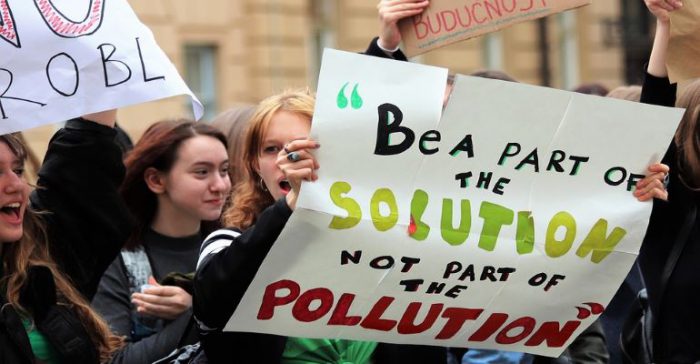This article was written by Ethan Gasse for Zondits.
The Global Climate Strikes have caught international attention from politicians, media outlets, and citizens alike. Two consecutive strikes, held on the 20th and 27th of September, featured events in reportedly 185 countries in 6,383 cities. These numbers are reported by Greta Thunberg, the 16-year old Swede who has taken a role as a leader in this campaign to save the world. I went to Boston on September 20th to interview strikers and get the story on what has millions of people fired up.
The strike started in Boston’s City Hall Plaza on Friday morning. The square quickly filled with people both young and old, holding signs, chanting, and listening to guest speakers. All students who I interviewed had skipped school to attend the climate strike, either taking an excused or unexcused absence.
First, I interviewed Leah Parrott, an 18-year-old senior at Andover High School. Leah said she was attending the strike because there is a lack of focus on the effects and consequences of climate change on both a national and global scale. She stated her admiration for the steps Massachusetts is taking to prevent its output of carbon emissions and waste, citing the bill going through the state senate to convert Massachusetts into a 100% renewable energy state. Parrott later went on to say that she felt the state government was doing their job in the battle against climate change but the federal government, on the other hand, was not.
The International School of Boston was represented in strong numbers. The students I spoke with ranged from 15 to 16 years old, but many explained that more of their older and younger classmates were scattered throughout the event. Most of the students reported similar worries to Parrott, citing concerns about carbon emissions while giving well educated and detailed knowledge about the greenhouse effect and what it does to our atmosphere, as well as its relation to rising temperatures across the globe.
Other young people I interviewed discussed their concern of whether or not there would be the potential to raise families in the future if this positive feedback loop of carbon in the atmosphere and global temperature continues on its course.
In seeking a diverse population of strike attendees, I interviewed a man of 68 who did not wish to be named. He stated his disapproval for government action. He explained that problems get solved when the government listens to science and statistics and that this scenario should be no exception.
The hosts of the Boston climate strike said that there was no partisan side of this event and that anyone was invited to support the strike against the climate crisis. After conducting my own research through an anonymous poll from dozens of people in attendance, I concluded the majority of the crowd was Democrat or green party.
The second Global Climate Strike took place the following Friday, and the movement’s lead catalyst Greta Thunberg is touring nations and holding protests every Friday going forward.
